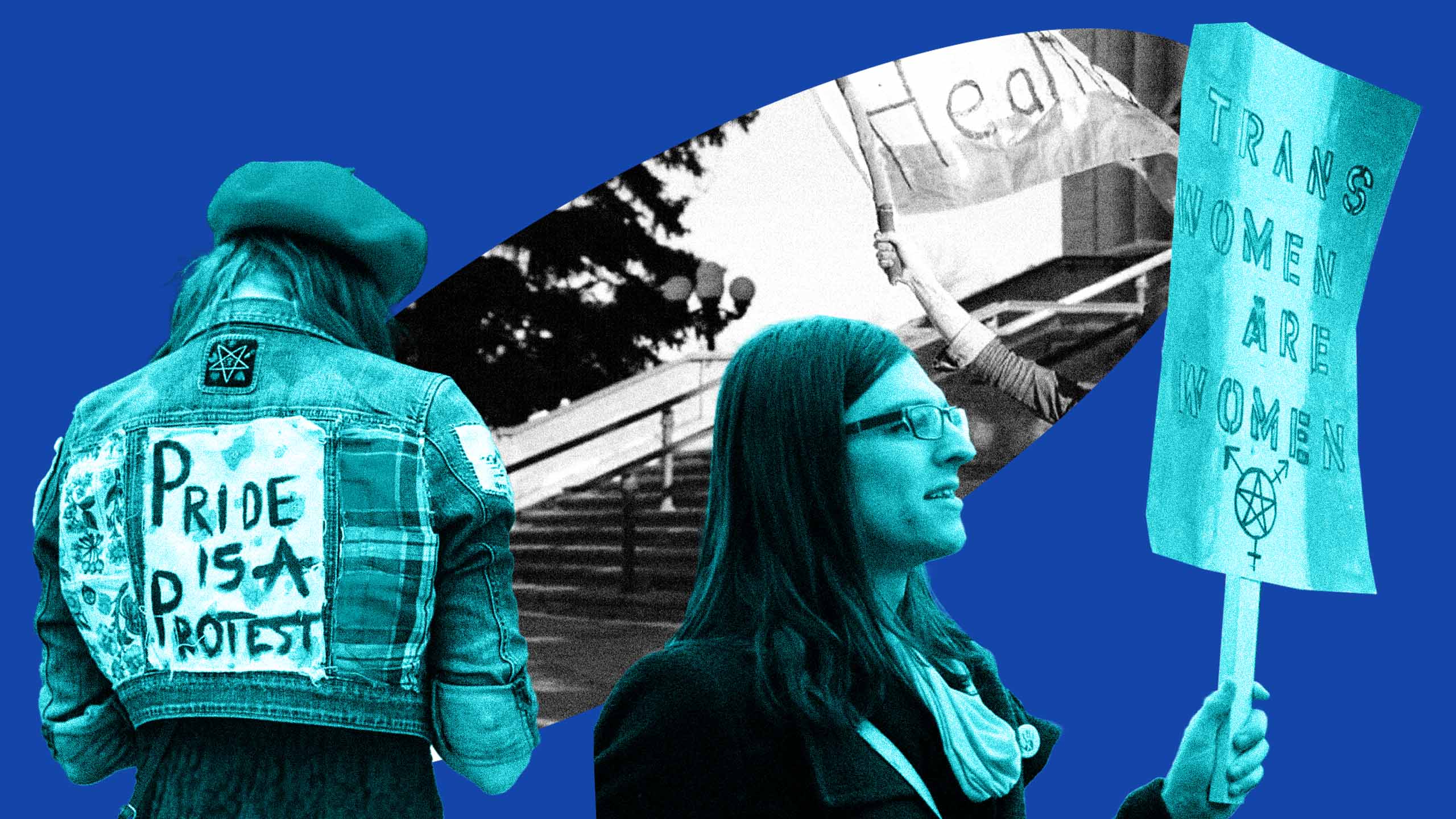After noticing a lack of community for transmisogyny-affected youth in Regina, Cat Haines knew something needed to be done. So, the 36-year-old community organizer and artist decided to start Into the Streets, a peer mentorship group for transfeminine youth.
“I really hope that this program can be a coming-into-themselves for the girls participating,” Haines said in an interview with MSN. “Growing up, I didn’t even know trans people existed. They were so invisible in our community. Visibility is so, so important.”
Named after the well-known queer/trans slogan “out of the closet, into the streets,” the group seeks to connect a youth mentor between the ages 15 and 25 with an “anchor mentor,” who would be older and have experience as a leader within the LGBTQ2S+ community. Haines said that she wants to help them connect to learn life skills like boosting their employability and discuss issues of identity and community activism. After first connecting in March, the pairs will engage both in one-on-one and group activities before co-creating events and projects for Trans Pride Regina in June.
“One of the goals is to help transfeminine youth find their voice and their power, so they can create change in their community through learning skills around community organizing and direct action and mutual aid,” Haines told MSN.
Nova Latham, the program manager for Into the Streets, told Xtra over email that the program seeks to respect the contributions of both the youth mentor and the anchor mentor.
“In the spirit of community-building and mutual respect, we’re taking an approach where instead of the more traditional mentor telling the mentee what to do and how to do it, having the youth peer mentors and anchor mentors on equal footing and collaborating together, acknowledging that there are things that they can both teach each other,” Latham says.
The program isn’t just empowering the mentors through connections, but on a practical level as well by paying the mentors. Haines told CBC that the mentors would receive a CAD $1,000 stipend for their work and a $200 sponsorship for the Pride events they organize. Latham explains that local organizations are helping fund Into the Streets.
“We are receiving financial and administrative support from UR Pride Centre for Sexuality and Gender Diversity, a local non-profit service provider, and Ivy + Dean Consulting, a transmisogyny-exempt, trans/non-binary-owned consulting company that focuses on providing support to small- and medium sized non-profits,” Latham says.
Launched at the end of January, the organization is filling a critical resource gap for transfeminine youth. According to Latham, Haines had noticed both a lot of discrimination toward trans people and a lack of “mentorship, role models and overall intergenerational community between trans women and girls.” Haines told MSN that some trans people hesitate to be involved in youth programs because of the right-wing propagated myth that trans people are “groomers,” which has been used to justify the rash of anti-trans laws spreading across the United States—and which has accompanied an increase in anti-trans discrimination across North America as a whole.
“Within Regina, there’s still a big lack of visibility of transgender communities, especially trans women and girls. There are huge levels of discrimination and harassment,” Haines told CBC.
“There’s employment and housing discrimination, which again affects the social determinants of health,” Haines added. “This program provides them with an opportunity to find and use their voice, and power to make change in their communities.”
Latham echoed Haines’s sentiments, saying that there was a specific lack of outlets for community participation for transmisogyny-affected youth.
“Regina has a few youth groups for queer and trans people, but there is often a lack of participation amongst trans girls and other transmisogyny-affected youth,” Latham says. “This program hopes to bridge that gap through bringing together transmisogyny-affected youth and role models to create a specific space where they can not only learn and grow, but further mobilize the community.”
Into the Streets is open for applications until the end of February.


 Why you can trust Xtra
Why you can trust Xtra


